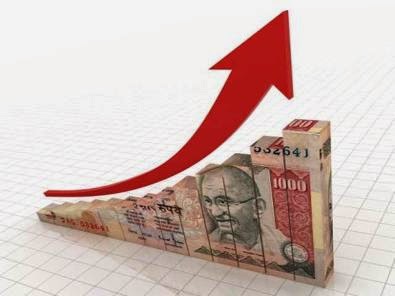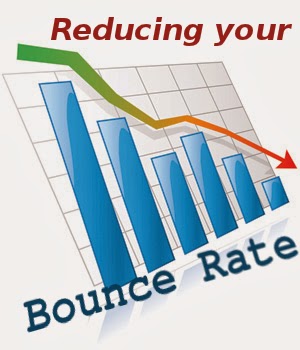Fixed deposit v/s Recurring deposit - Which is better?
Numerous a period's investors get confounded whether to invest in a fixed deposit or a recurring deposit for their investment destinations. The fascination for both these instruments is the fixed comes back with safety of money invested. Anyway when you look at the two, a fixed deposit scores higher than a recurring deposit. How about we perceive how these two items vary in the profit and when you ought to select them
Both these items have the same taxability. The investment gained from these two is added to your aggregate income and taxed at your particular income tax rate. So on the off chance that you are in 30% tax slab, the enthusiasm from FD & RD will be taxed at the same rate. Be that as it may, there is a contrast in the way of tax finding. In a fixed deposit, banks deduct TDS if the premium income in a year surpasses Rs 10000 yet there is no TDS finding in recurring deposit. This one characteristic influences investors' premium towards RD when there is an examination.
When you analyze both these items, a fixed deposit gets you more income than a recurring deposit. We should expect you have invested Rs 24000 in a fixed deposit at begin of the year and Rs 2000 p.m. in a recurring deposit for a year. Both these items offer you a 9% rate of investment aggravated quarterly. This is the thing that you will acquire from these two instruments:
As should be obvious, after a year you will accept Rs 26324 in a fixed deposit while in RD you will get Rs 25195. So the recurring deposit procures you Rs 1039 short of what a fixed deposit.. The essential purpose behind this contrast is that in FD you invest a lumpsum sum thus the whole money procures enthusiasm for one year. Anyway in a recurring deposit the first portion procures enthusiasm for 12 months period, the second for 11 months, third for 10 months et cetera. Because of this variety FD can bring a higher maturity.
Despite the fact that FD win higher than RD, its not achievable for a solitary item to help. When you don't have a lumpsum to invest yet can spare a characterized sum from your income consistently, a recurring deposit is a more reasonable item. With it you can accomplish a destination of standard reserve funds for your medium term needs. Anyway when you have a lumpsum to invest then FD is a smarter decision.
In spite of the fact that both these managing an account items engage all class of investors, it is more lucrative for little investors who are basically in easier tax slab. The less or non-taxability of enthusiasm alongside high premium payout in today's situation guarantees a great fixed income for their objectives. Benefit them as they will help in gathering certain destinations yet do look into all partnered variables.
Features
Both FD and RD are fixed income items accessible from banks. On the invested sum banks pay you a fixed premium which might be at a particular frequency work the term or on maturity. At the end of the term, the maturity sum which is your invested capital, alongside remaining or gathered premium is paid. Despite the fact that the enthusiasm of saving money items change with premium rates situation, in both these items once you have invested the premium rate stays same all around the term. As of late the high climbing rates have incited banks to offer high premium rates on these two instruments thus the fascination of investors has expanded complex.Taxability
Both these items have the same taxability. The investment gained from these two is added to your aggregate income and taxed at your particular income tax rate. So on the off chance that you are in 30% tax slab, the enthusiasm from FD & RD will be taxed at the same rate. Be that as it may, there is a contrast in the way of tax finding. In a fixed deposit, banks deduct TDS if the premium income in a year surpasses Rs 10000 yet there is no TDS finding in recurring deposit. This one characteristic influences investors' premium towards RD when there is an examination.
Where you procure more?
When you analyze both these items, a fixed deposit gets you more income than a recurring deposit. We should expect you have invested Rs 24000 in a fixed deposit at begin of the year and Rs 2000 p.m. in a recurring deposit for a year. Both these items offer you a 9% rate of investment aggravated quarterly. This is the thing that you will acquire from these two instruments:
| Fixed Deposit | Recurring Deposit | |
|---|---|---|
| Invested Amount | 24000 | 2000 p.m. |
| Interest Rate | 9% compounded quarterly | 9% compounded quarterly |
| Total Interest Earned in a year (Rs) | 2234 | 1195 |
| Total Amount after One Year (Rs) | 26324 | 25195 |
| Difference (Rs) | 1039 | - |
As should be obvious, after a year you will accept Rs 26324 in a fixed deposit while in RD you will get Rs 25195. So the recurring deposit procures you Rs 1039 short of what a fixed deposit.. The essential purpose behind this contrast is that in FD you invest a lumpsum sum thus the whole money procures enthusiasm for one year. Anyway in a recurring deposit the first portion procures enthusiasm for 12 months period, the second for 11 months, third for 10 months et cetera. Because of this variety FD can bring a higher maturity.
At the point when to Invest in FD & RD?
Despite the fact that FD win higher than RD, its not achievable for a solitary item to help. When you don't have a lumpsum to invest yet can spare a characterized sum from your income consistently, a recurring deposit is a more reasonable item. With it you can accomplish a destination of standard reserve funds for your medium term needs. Anyway when you have a lumpsum to invest then FD is a smarter decision.
In spite of the fact that both these managing an account items engage all class of investors, it is more lucrative for little investors who are basically in easier tax slab. The less or non-taxability of enthusiasm alongside high premium payout in today's situation guarantees a great fixed income for their objectives. Benefit them as they will help in gathering certain destinations yet do look into all partnered variables.




Comments
Post a Comment
Thank you commenting on the DP2Web Blog.
Stay Tuned with Us: